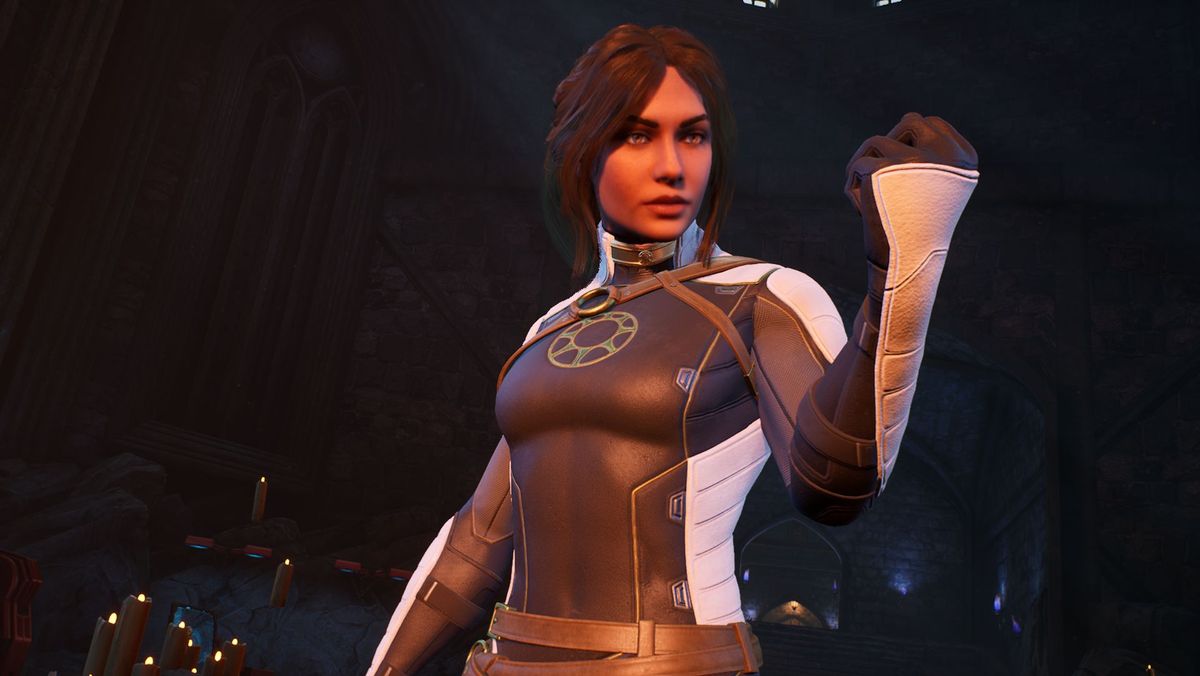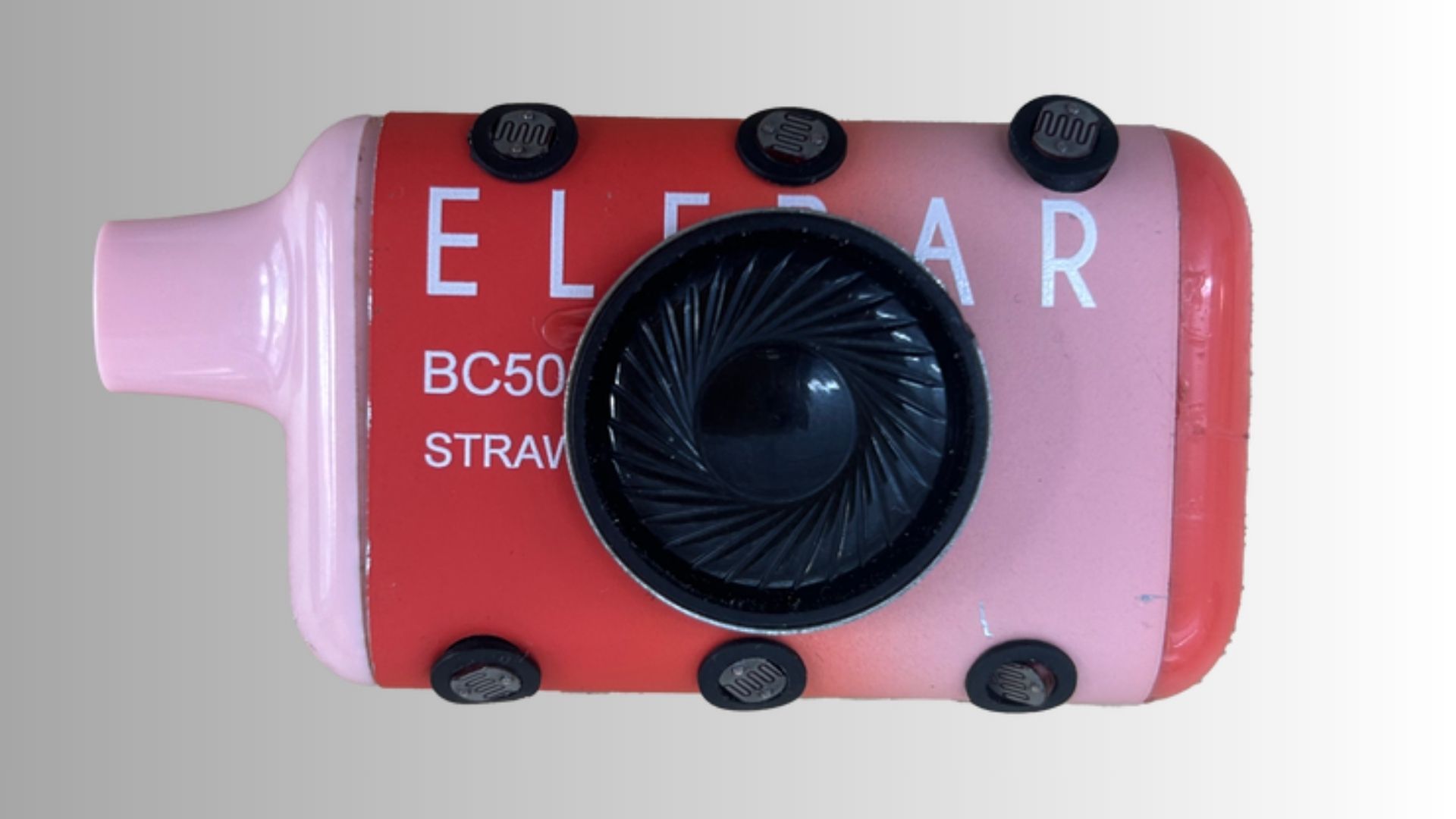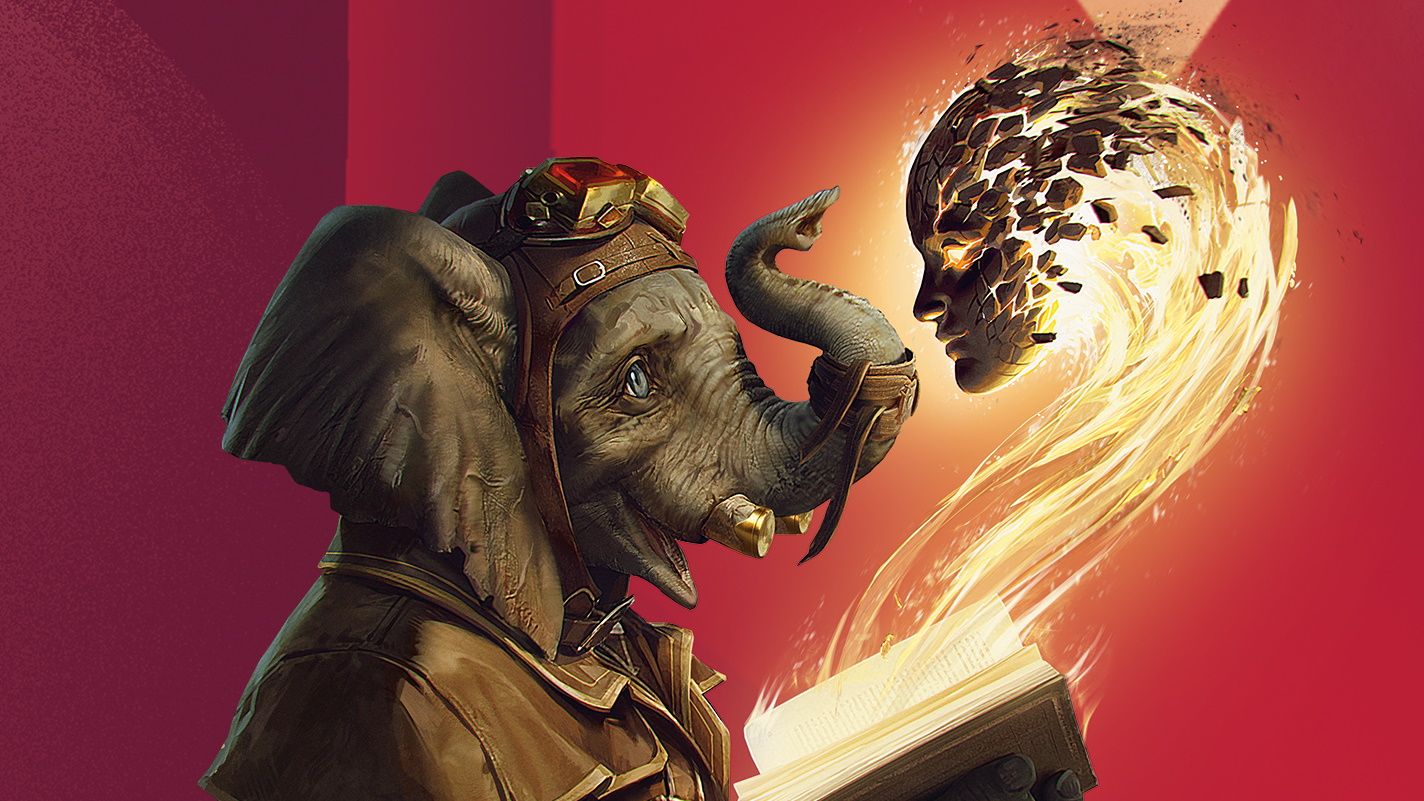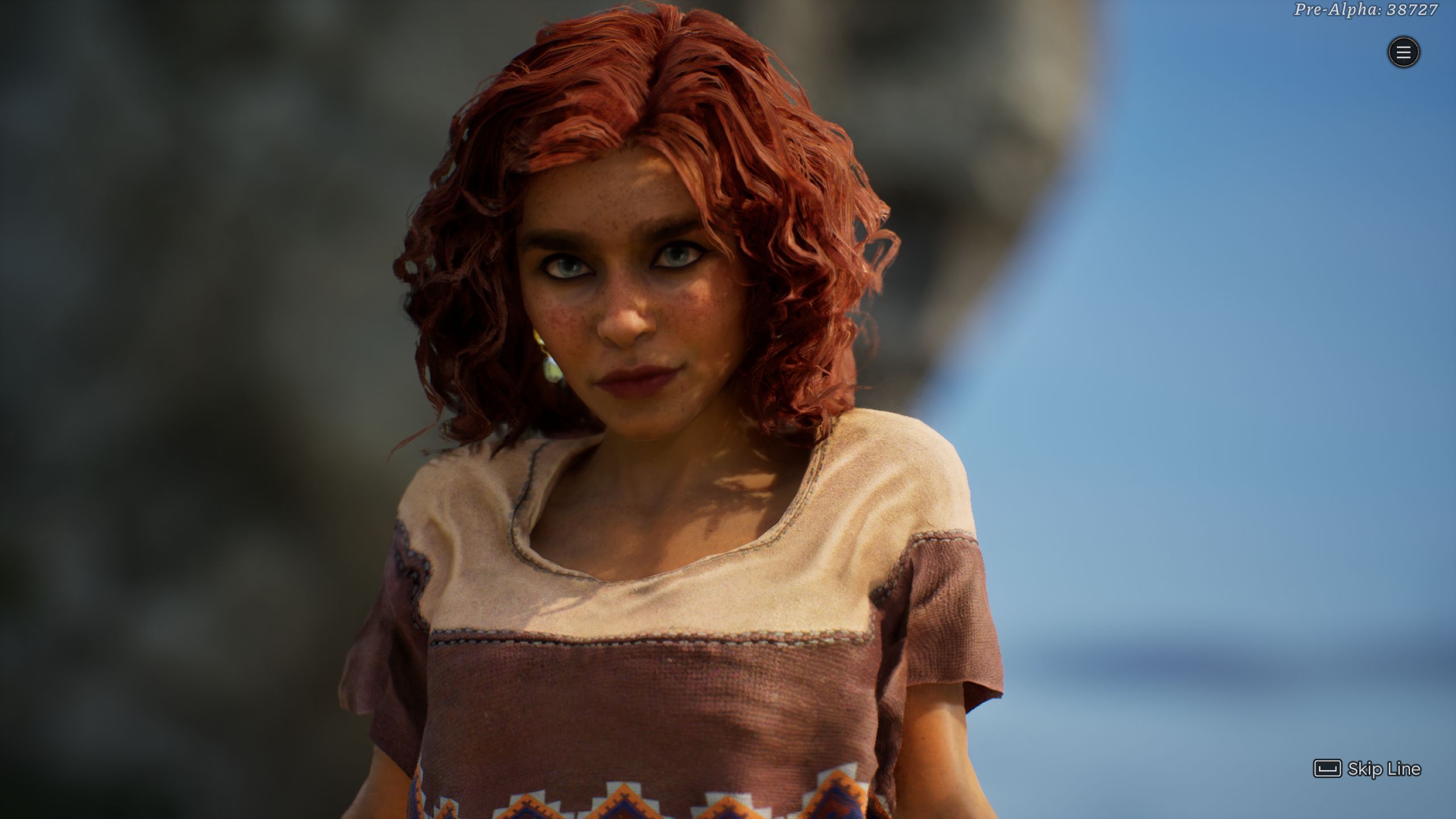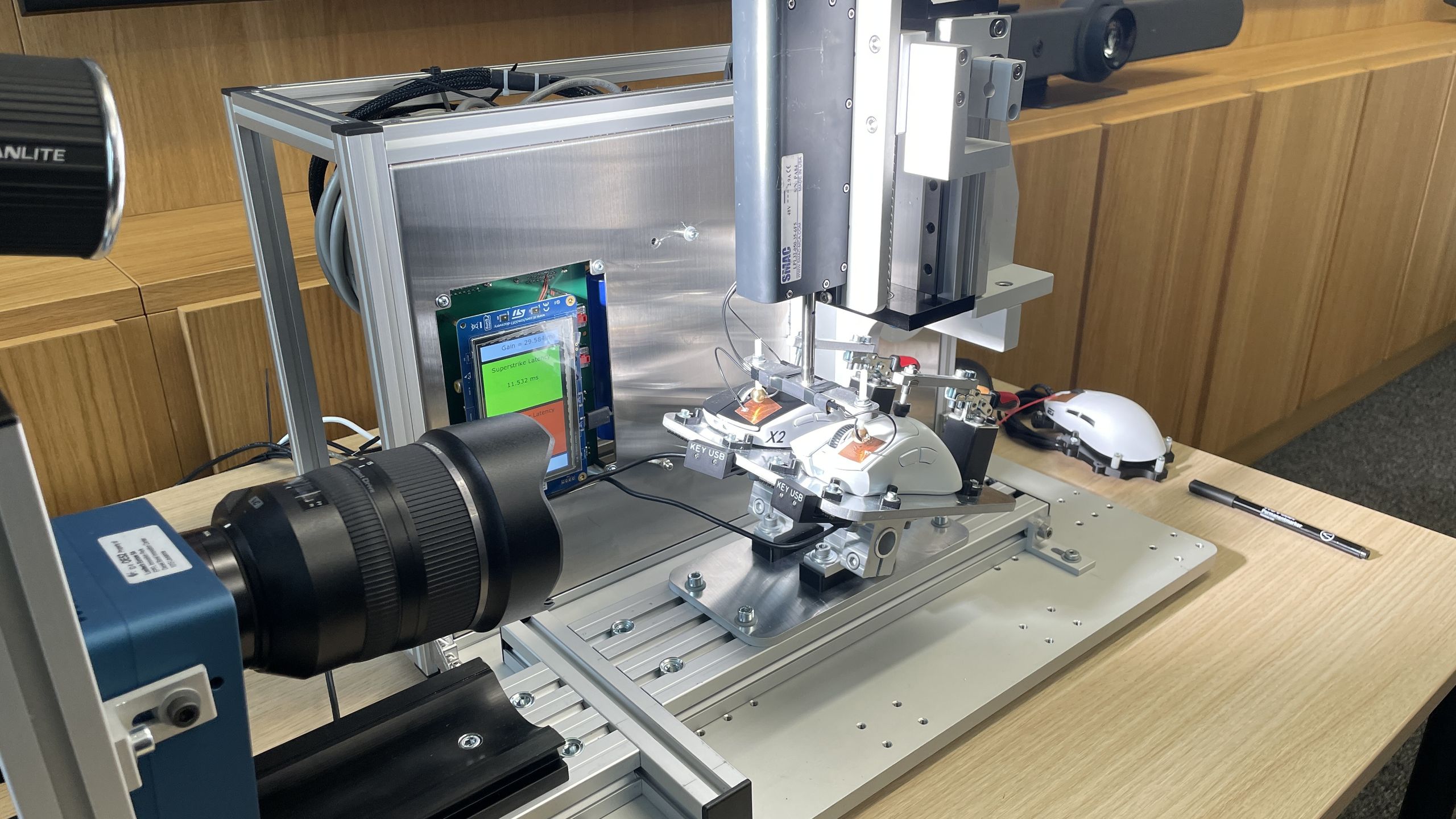Dissociative amnesia is a condition linked to stress in which you can forget information about yourself, events from your life, and even learned skills. In reality, it’s mercifully rare—the US hospital network Cleveland Clinic (opens in new tab) says around 1% of men and 2.6% of women in the general population are affected. But among videogame protagonists, prevalence is much higher, and the loss of memory is usually extensive.
Geralt spent two games getting around to remembering who the love of his life was—making use of the intervening time to explore a romantic relationship with one of her best mates instead. Knights of the Old Republic’s entire plot hinged on a total lack of knowledge of who you were and where you came from, teeing you up for a famously gnarly twist. And this year, the parkour FPS Neon White (opens in new tab) used the forgetfulness of its titular anime killer to create a sense of unease around companion characters who may or may not have been manipulating you. To paraphrase Guy Pearce: Don’t believe their lies.
From a game developer’s point of view, the practical benefits of the condition are clear. Amnesia explains how a character might start from the bottom and quickly climb a skill tree, achieving mastery of acrobatic and magical abilities that were completely alien to them just a couple of weeks earlier. By and large, relearning is easier than learning.
Then there’s the roleplaying bonus. Amnesia helps reduce the knowledge gap between the protagonist and player—the dissonance that comes from hopping straight into the body of a person with preexisting relationships and hitting their lifelong friends with questions like, “Who are you again?” If that character has amnesia, there’s suddenly an in-universe reason to hold orientation meetings. And later in the story, as you explore the game world and revelations start dropping, you and your avatar can respond in shocked unison.
Memory game
Marvel’s Midnight Suns (opens in new tab), the recent turn-based tactics game from XCOM developer Firaxis, fills out the amnesiac bingo card—exploiting all the usual tricks. Shortly into its high stakes, Avengers-adjacent adventure, The Hunter is resurrected from a centuries-long slumber to lead the Midnight Suns against the rogue witch and demigod Lilith. In that respect, its premise is almost identical to that of XCOM 2, in which The Commander is awakened after decades in stasis to take up the defence of Earth.
The Hunter’s precise form of memory loss is selective. Although technically dead during her 300-plus years out of the game, she’s quietly absorbed enough of the outside world to make sense of it. As she puts it herself, the Midnight Suns protagonist knows what a car is, but has no idea how to drive. This handy setup allows her to come fresh to relationships with the likes of Iron Man, Blade and Captain Marvel, but circumvents the necessity of scenes concerning the discovery of penicillin or invention of toilet paper.
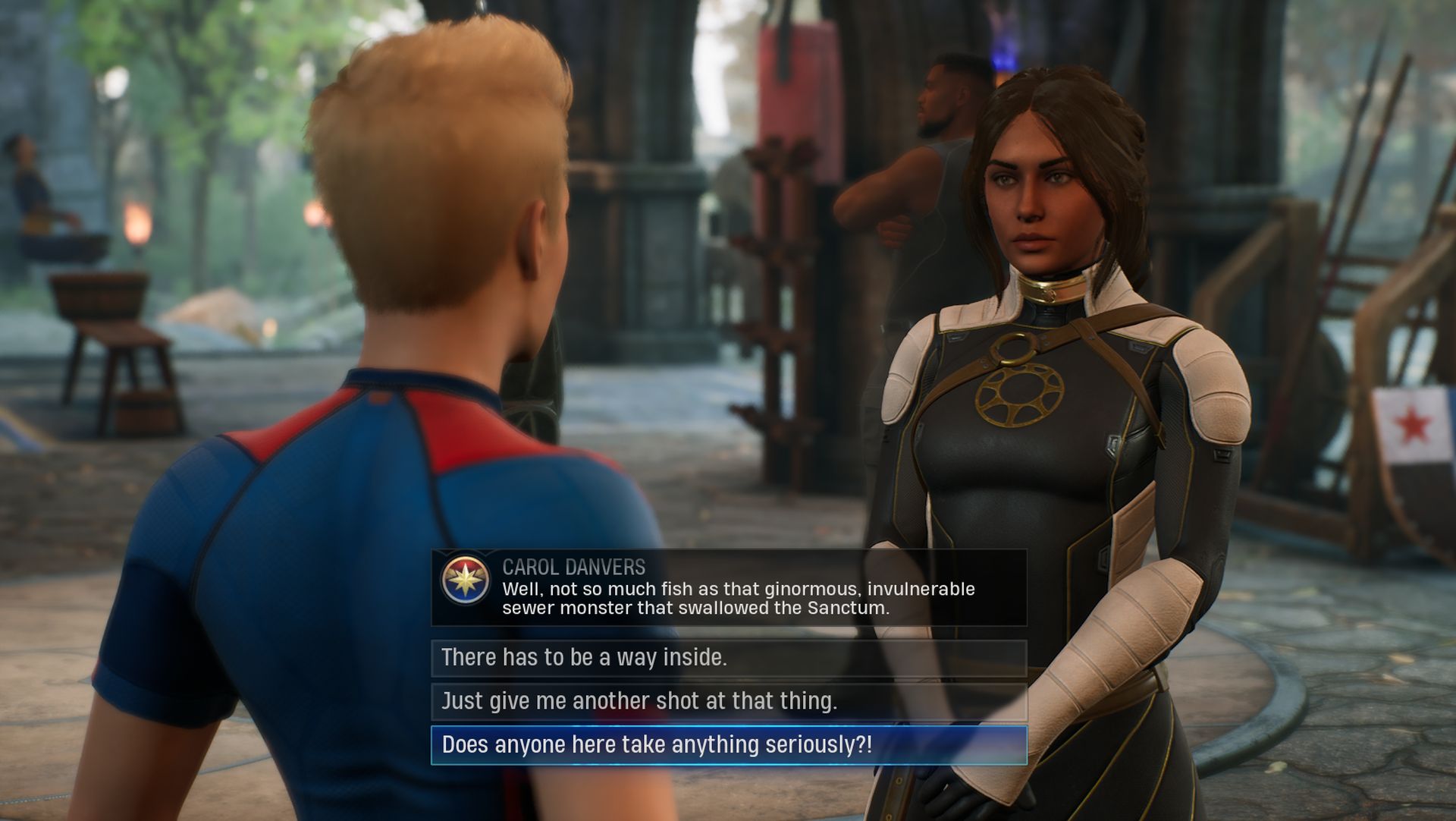
It’s a convenient device—but becomes something more, thanks to a decision from Firaxis to lean into fish-out-of-water comedy. The backstory of The Hunter is a dark fantasy tale that takes place in the age of the Salem witch trials. She was born the child of an ordinary man and an immortal witch, but when her father succumbed to plague, grief led her mother down a dark path, at the end of which was a deal with an evil Elder God. The result was Lilith, the demonic supervillain, and The Hunter spent her childhood training to defeat mummy—which she did, at the cost of her own life.
In other words, her life experience is limited to tragic 17th century melodrama—a history reflected in her mode of speech. I’ve been playing The Hunter as a woman, with voice acting by Elizabeth Grullon, but there’s also a male performance available, from Matthew Mercer. Both deliver their lines with the rhythm and intonation of a slightly concussed movie trailer narrator—deep and slow.
Sense of wonder
Throw this ancient sorceress into the wisecracking millennial milieu of the wider Marvel cast, and conversation becomes instantly funny. That’s particularly true on the Superlink, a text-based social network built by Tony Stark, on which our hero adopts the matter-of-fact messaging style of a grandparent.
The Hunter quickly drops the definite article to become Hunter, just another t-shirt-wearing supe with a strange origin story in a roster full of ’em. But she retains her owl-like stare—perhaps amplified by Midnight Suns’ b-grade facial animation—and brings an endearingly naive earnestness to every encounter. It’s the same tone that made Patty Jenkins’ 2017 Wonder Woman sing, and which was fatally lacking in the movie’s sequel. I eventually learned to wince whenever I selected a “[joke]” option in dialogue—knowing that my overeager avatar had a tendency to make such a hash of sarcasm that her friendships would be negatively impacted as a consequence.
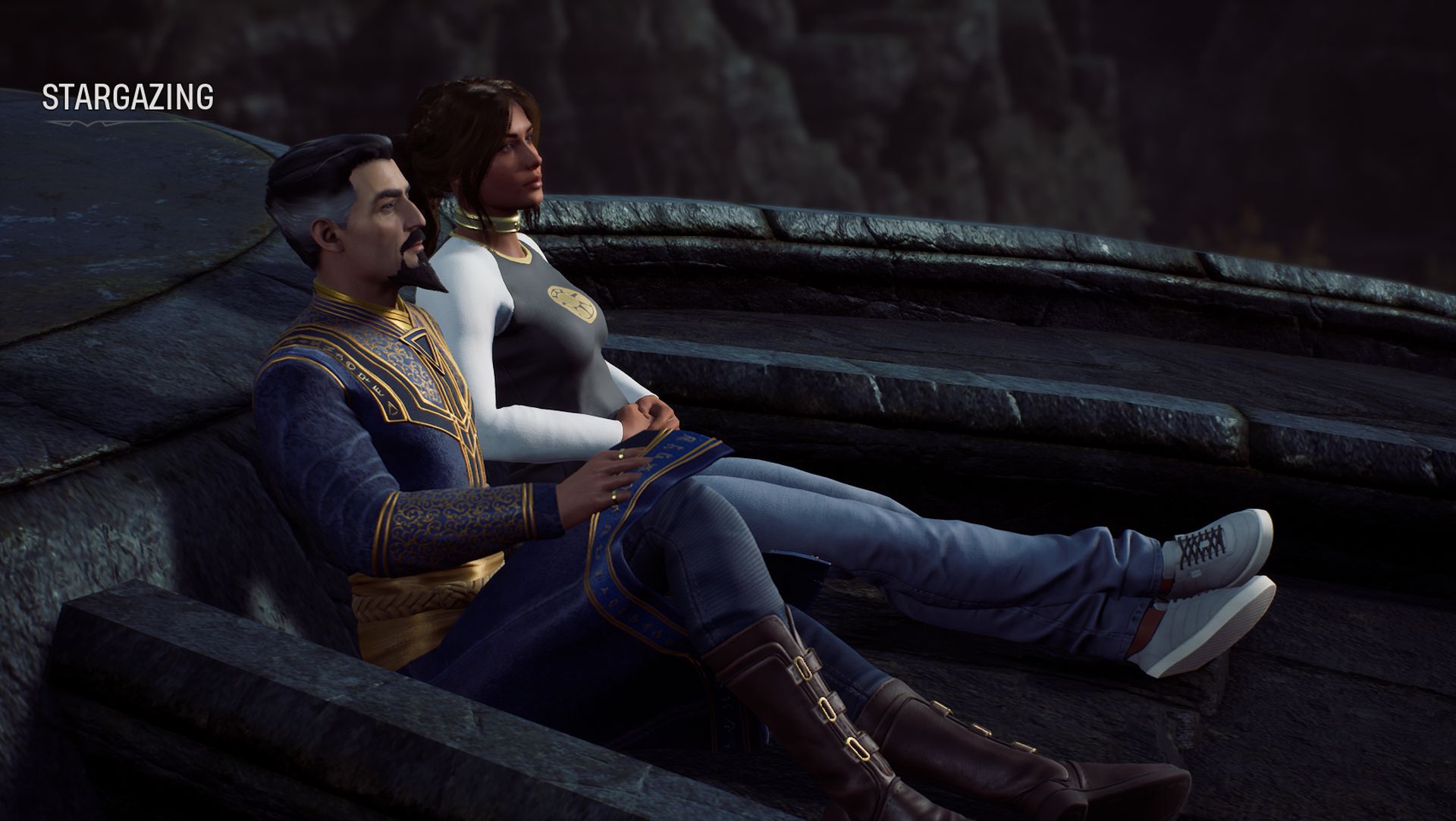
Conversation is such a frequent event in the before-and-after-battle downtime of Midnight Suns that you get to explore Hunter’s social transformation in just as much depth as you do her combat deck. On the one hand, she’s surrounded by the familiar environment of the Abbey in which she grew up—and still influenced by the stern presence of Caretaker, the ancient witch who raised her as a weapon, and the ghost of Agatha Harkness, who provides a more kindly and permissive counterpoint. On the other hand, Hunter also has a front row seat to the rumbling conflict between the Midnight Suns themselves—young, hotheaded, keen to get into the action—and the cooler, more arrogant Avengers swanning about the place.
There’s a sense, as the campaign rolls on, that she’s absorbing perspectives and trying on new identities with each costume change, working out how and who to be in a wi-fi-paced new world. That said, the greatest tribute I can pay to Midnight Suns’ protagonist is to point out that, somehow, Hunter feels every bit as fleshed out and historied as the heroes in her company. Surrounded by characters with half a decade of stories to their name, she holds her own as an equally compelling mass of contradictions and comic moments. MCU cameo when?

